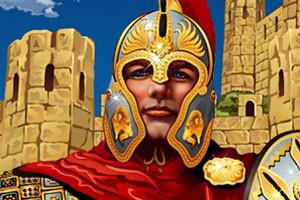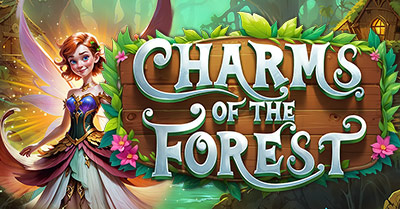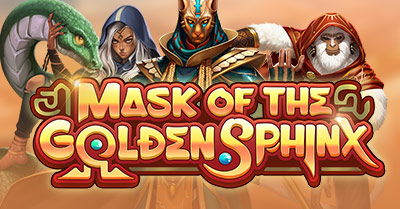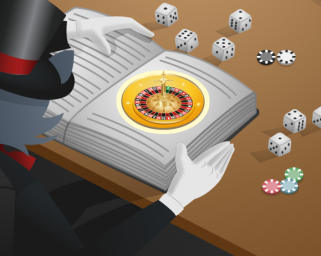There was gambling in ancient times. Believe it or not, civilizations have gambled since the Paleolithic period, aka before history itself was written or documented. One of the first ever forms of gambling dates back to approximately 3000 BC. In the historical region of Western Asia, people played games using a six-sided dice. China adopted the use of playing cards in the 9th century. And the Persians were the first people to introduce As-Nas (or Poker as we know it today!).
Gambling in Ancient China

Approximately 2300 BC (during the Xia dynasty) was when gambling became an active movement in ancient China. They were the first civilization to invent playing cards with numbers and symbols. It was the Persians who created face-playing cards such as kings, queens and jokers. The Chinese were the first to ‘shuffle’ money, which as you can probably guess – eventually lead to shuffling the cards themselves. The Chinese created Keno and other famous Chinese playing games such as Wei-Qi, Mahjong, Yue Har Hai and Xuan He Pai (Dominos to us!).
Nearly all forms of gambling are illegal today throughout mainland China. To satisfy the nation’s penchant for thrill seeking, they still permit state-run lotteries and certain games within the region of Hong Kong and Macau. Overall it is the country most renowned for a love of gambling throughout the whole of the Far East.
Gambling in Ancient Greece
 According to Greek mythology, gambling in Ancient Greece began at the dawn of time. There came a time when the gods Zeus, Hades, and Poseidon set out to split up parts of the universe. When the final bet took place, Zeus won the skies, Poseidon won the seas, and Hades drew the short straw, ending up with the underworld.
According to Greek mythology, gambling in Ancient Greece began at the dawn of time. There came a time when the gods Zeus, Hades, and Poseidon set out to split up parts of the universe. When the final bet took place, Zeus won the skies, Poseidon won the seas, and Hades drew the short straw, ending up with the underworld.
Even though gambling was an illegal act for many centuries here, people still partook in the first variations of checkers, heads or tails, animal fights, and other luck-based betting activities for fun, excitement and to pass the time. Dice games appeared in ancient Greece. They would play with either 3 or 4 dice shaken and then thrown out from a special cup. Dice were often mocked for being controlled by higher entities. So they were deemed as a simple way of making guesses which had no effect on the outcome of the actual game.
Gambling in Ancient Rome
Rome has always been a country notorious for its gambling history and culture, especially when Emperor Augustus reigned. When he wasn’t busy conquering the known world, Augustus had a heavy gambling addiction.
Most forms of gambling were strictly prohibited during the times of the Roman Empire. But every year there would be a festival known as ‘Saturnalia’. The festival honored the God Saturn, the god of generation, dissolution, plenty, wealth, agriculture, periodic renewal and liberation. This allowed both men and women of all classes to indulge in food, drink, sex, and games of chance for a whole week.
An early precursor to today’s alcohol fueled weekend binges in Las Vegas and perhaps the true ancestor of the phrase “what happens in Vegas, stays in Vegas”, i.e. “what happened during Saturnalia…”
The main highlight of this festival was the switching of roles between masters and slaves . This allowed the formers to dine and place bets at the same table where the masters sat. The masters themselves often served the slaves. The kind of games played during this annual celebration involved dice, where nuts and coins were used as stakes.
Gambling in Ancient Egypt
 While perhaps not coming across as the ultimate thrill seekers, Egyptians also gambled. Busy as they were cracking whips to drive an army of slaves to build pyramid after pyramid to their cult of death and the afterlife, the Egyptians were also very keen gamblers. The earliest forms date back to the Old Kingdom over 2,000 years before the birth of Christ.
While perhaps not coming across as the ultimate thrill seekers, Egyptians also gambled. Busy as they were cracking whips to drive an army of slaves to build pyramid after pyramid to their cult of death and the afterlife, the Egyptians were also very keen gamblers. The earliest forms date back to the Old Kingdom over 2,000 years before the birth of Christ.
Gaming rituals were basic and simple, generally involving throwing sticks and pebbles onto the ground. The results were determined by the outcome of the objects landing on the ground in an ‘odd’ or ‘even’ manner.
The game became more sophistically advanced over time. Soon they incorporated more objects with additional patterns and further possible outcomes. In the centuries that followed, playing cards, dice, and early forms of board games became “backgammon” and “senet”. It was at the turn of the 15th century when Asia brought the first form of lottery to Europe.
The Earliest Form of Casino Games
Blackjack
There is no concrete evidence to decipher whether it was the Romans who created Blackjack or whether it was the Spanish or French. However, what we do know is all 3 different nations played with very similar rules, with the same overall objectives in all 3. The Spanish dubbed it “One and Thirty” because the aim was to reach 31 with at least 3 cards. The French called it Vingt-et-Un (Twenty-One) and the Romans probably had their own term for it. But they played with wooden blocks inscribed with numerical values.
Out of the 3 variants, it was ‘21’ which came to be the game many cultures adopted, particularly in North America. These days it has evolved into a game you can find at practically any casino (online or offline). You will also find multiple versions which can all play to slightly different dynamics these days too.
Baccarat
Baccarat is another game with debatable origins. However, the game probably hails from Italy, as the term ‘baccarat’ actually means Zero in Italian. It is also said to have been invented by an Italian man called Felix Falguierein during the middle ages, who initially played the game using Tarot cards. In 1490 AD, the game became popular in France and it was there it became known as “Chemin de fer”. Eventually Europe adopted the game, and that’s when the ‘European Baccarat’ variant appeared. Today the game comes in many different formats. The most popular ones are American Baccarat, Online Baccarat and of course Mini Baccarat. The latter is a simplified version of the game played with lower table limits, created with the aim to enticing less wealthy players.
Poker
Poker is a game who many believe to be a straight derivative of the Persian game As-Nas, which dates back as far as the 17th century. Initially poker used a pack of 25 cards with 5 different suits. The game play exactly resembles poker including stakes. The key difference was the fact there was no such thing as flushes or sequences for it back then.
Even though the French would probably have something to say about it – it was undeniably the US who really brought poker to life during the 19th century.
Slots
In 1891, 2 inventors by the name of Sittman and Pitt from Brooklyn, New York, came up with the idea to develop a gambling machine. This machine was based on 5 drums, all of which held 50 cards and played the same way as poker. The player would insert a nickel and pull the lever. Then the outcome of the cards showed after the drums stopped spinning. There wasn’t an awards system in place back then. So if you got a royal flush for example, you would collect your winnings from the bar. These would either be free drinks or cigars, depending on what the establishment had in stock or were permitted to use as prizes.
Over the years, the beloved slot machine underwent many makeovers and adjustments by various different people. Today slots, (or “fruit machines”) are the most popular item in most casinos. And payouts for these can be in the millions – a very different contrast to the winnings back in the 1800s!
Roulette
Roulette broke through as a gambling fixation back in 18th century France. They first started calling it ‘little wheel’. Blaise Pascal invented the wheel when trying to develop a perpetual-motion machine. Unfortunately, his efforts lead to failure of this original project. But in its place the roulette wheel was born. It quickly became popular among the gamblers and players of France.
As the years moved on, word of this “little wheel of fortune” spread. Soon other countries such as Germany began adapting the game to slightly different styles, such as removing the double zero pocket. Once it had taken off in Europe, the US eventually got wind of roulette. Thus by the 19th century, the game had developed into other variants of the French original. That’s why you’ll often find European, French and American roulette versions in many online and offline casinos today.
Sports Betting
The act of betting on sports goes back as far as 2,000 years ago. It was this form of gambling which inspired the Greeks to introduce the Olympics to the rest of the world. It was also how the Romans would bet on Gladiator tournaments. Horse racing bets became popular in England around 200 AD. This was another sporting activity which soon spread and became a favorite among gamblers of central Europe and America
The First Casino
 Nobody truly knows the origins of where or when the first gambling establishment took place. Although there were many ‘gaming’ dens and halls, there was no such thing as a ‘casino’ back in ancient times. Even gambling itself was a grey area that had very few set rules or regulations.
Nobody truly knows the origins of where or when the first gambling establishment took place. Although there were many ‘gaming’ dens and halls, there was no such thing as a ‘casino’ back in ancient times. Even gambling itself was a grey area that had very few set rules or regulations.
The first official building for a legal mercantile casino stood in Venice, Italy during the 16th century. They made this decision based on the frequency and problems arising from these pop-up style gambling places. Authorities realized they wouldn’t be able to prevent citizens from wagering on dice or card games. That’s why in 1638, the local council set out to create a safe and non-problematic space for people to play betting games while carnival season was in full swing.
This establishment was known as the ‘Ridotto’, which in Italian is translated as “private room” or “closed off”. The building was open to the general public. But due to its strict dress code, high stakes and great decadence – only a minority of nobles were accepted and welcomed in to play. The most popular game in the casino was called Basetta. The game is a cross between Blackjack, Gin & Rummy as well as Poker, which offered 60 times the payout at the time.
In 1774, the Riditto closed after the Venetian reformer ‘Giorgio Pisani’ put forward a proposal that would “preserve the piety, invoke sound discipline and moderate behavior”. The masses favored this motion, and the same year the casino closed down for good.
3 Interesting Historical Gambling Facts
You can make dice out of anything
Since the dawn of time, ancient civilizations would carve and shape items into dice from various natural materials such as wood, rocks, and bone. Archaeologists even discovered animal hooves which had been engraved into dice in the past. People used them in old fortune-telling and divination techniques. The term originates from the Greek word ‘dike’ which means ‘to throw’.
Britain’s most famous king was a heavy gambler
King Henry VIII had a reputation as one of the worst and most unsuccessful gamblers ever during his reign over England from the year 1509. He would spend hours wagering on games such as Bragg or Dice. And more often than not, he would bet priceless, invaluable items such as the treasured Jesus Bells of old St. Paul’s church on one roll of dice game. When questioned over his actions, the King disregarded all negative publicity that arose from the incident, claiming the bells were ‘worthless‘. Needless to say, citizens across the country were not happy!
The devil possesses Roulette players
Ok so the possession part may not be a fact, but the numbers on a roulette wheel adding up to 666 IS definitely a fact. The French inventor and mathematician Blaise Pascal created the wheel in 1796. He was experimenting with probable theories and attempting to create the first ever perpetual motion machine. While he was working out the practicalities and numbers needed for the wheel to function properly (aka 0-36), his findings meant the numbers just so happened to total up to the ‘number of the beast’.



























